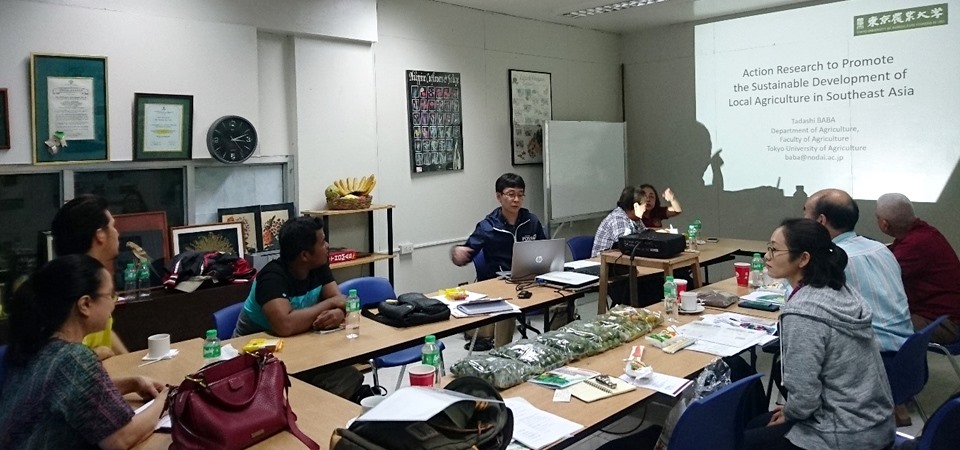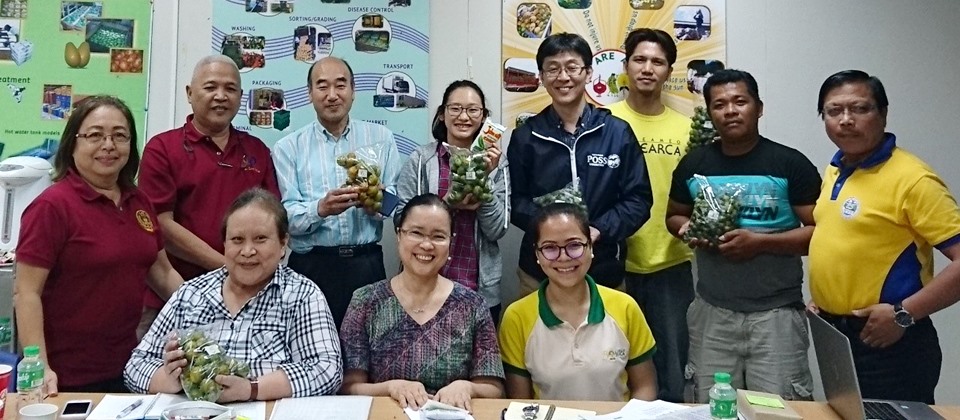SEARCA and MinSCAT presented the overview of the project titled, Revitalizing the Calamansi Industry in Victoria Oriental Mindoro under SEARCA's banner program Piloting and Upscaling Effective Models of Inclusive and Sustainable Agricultural and Rural Development (ISARD). To complement the interventions made by the project, a research proposal is being developed by SEARCA and UPLB, in collaboration with Tokyo Nodai, for funding consideration by the Department of Agriculture – Bureau of Agricultural Research (DA-BAR).

To contribute to the above-mentioned project, scientists from Tokyo Nodai, namely, Dr. Tadashi Baba, Dr. Yoshitaka Kawai, and Dr. Mika Yoshida, shared the results of their study conducted in Nueva Ecija titled, Antioxidant Capacity of Calamondin (X Citrofortunella microcarpa) Fruits in several Mature Stages and Commercially-Supplied Beverages in the Philippines. This activity was under Tokyo Nodai's project Action Research to Promote the Sustainable Development of Local Agriculture in Southeast Asia. They agreed to collaborate in the Calamansi Project in Victoria, Oriental Mindoro and will design their study to fit the Mindoro ecological conditions. The findings will also be validated and tested in Mindoro, specifically the off-season pruning technique to delay fruiting, utilizing airtight hermetic storage to prolong shelf-life, and correlating Vitamin C, ascorbic acid, and citric acid content with different stages of ripening. As a first step, they analyzed the soil samples and calamansi fruits at various stages of maturity, collected and brought by Mr. Virgilio Macailao, Research Assistant of MinSCAT.
SEARCA was represented by its Program Head for Research and Development, Dr. Bessie M. Burgos, together with Mr. Henry M. Custodio, Program Specialist for R&D; Dr. Lope B. Santos of the Project Development and Technical Services Unit; and Dr. Jose R. Medina and Ms. Angelic M. Reglos, Overall Coordinator and Project Assistant, respectively, of the ISARD Piloting Project. Mr. Macailao attended on behalf of MinSCAT. Tokyo Nodai representatives were hosted by Dr. Josephine U. Agravante and Ms. Helen A. Barrios, Head and Researcher of UPLB-PHTRC, respectively, during their 4-day stay in the Philippines. (Angelic Reglos)
